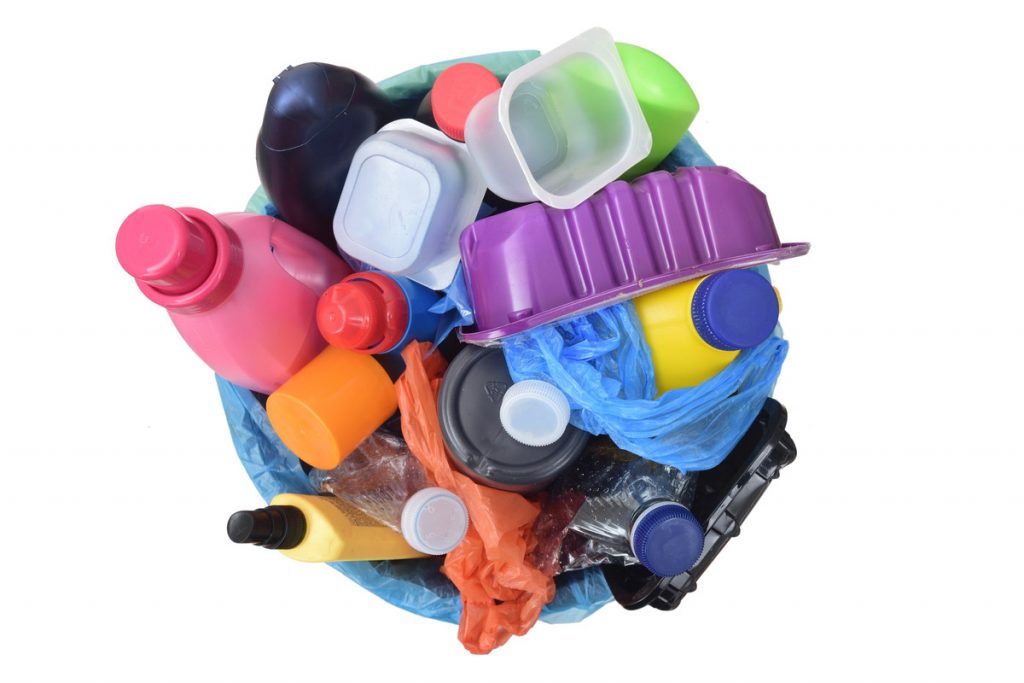
The Association of Plastic Recyclers updated its Design Guide for Plastics Recyclability to note that packaging containing degradable additives, nutrients and supplements are no longer considered recyclable. | Josep Curto/Shutterstock
Degradable additives, nutrients and supplements will boot packaging into the non-recyclable category, according to an update to the Association of Plastic Recyclers’ Design Guide for Plastics Recyclability.
APR recently announced the change to its formal position on additives, as did the U.S. Plastics Pact. (APR owns Resource Recycling Inc., which publishes Plastics Recycling Update.)
Jonathan Quinn, CEO of U.S. Plastics Pact, said that APR’s updated position “offers important guidance to help ensure the quality of recycled plastics.”
“We support efforts that bring clarity to the recyclability of materials, helping to inform decisions that benefit both the industry and the environment,” he said.
According to the APR Design Guide, a package design feature renders the package non-recyclable if a majority of MRFs or reclaimers can’t “remove these features to the degree required to generate a marketable end product,” according to a press release.
Packaging that contains degradable additives, nutrients or supplements can’t be detected using commercially available technologies and will affect both the quality and yield of PCR, a position paper noted.
“Without understanding the level of these additives or having to compensate for their presence through increased stabilization, it is possible that the integrity and/or useful life of plastic packaging or durable products made from recycled resins that contain these additives could be compromised,” the paper’s authors wrote. “Those interested in making products from postconsumer plastic resins with long term service lives may perceive and may be reluctant to accept a risk to long-term performance which may in turn reduce the value of postconsumer resins for long-term, demanding uses.”
Steve Alexander, APR president and CEO, said in the press release that the change in categorization “is based on research and reports published by independent research groups and better aligns APR with other NGOs in the recycling and circularity space as well as international manufacturers and retailers.”
“This update clearly reflects APR’s mission to improve all aspects of the plastics recycling process and protects the quality and yield of the PCR stream,” he added.
In light of the updated classification, APR is cautioning companies “to carefully review the Federal Trade Commission Green Guides, as well as U.S. state laws and European directives, when considering whether to label these traditionally recycled plastic containers as both degradable and recyclable.”